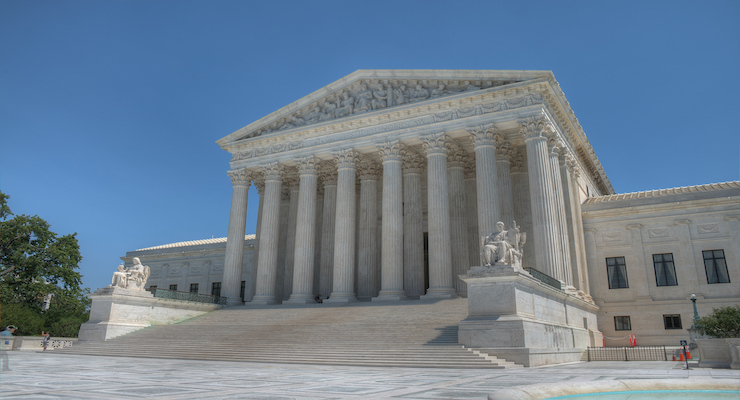
The U.S. Supreme Court recently unanimously agreed that a warrantless search and seizure of a man’s firearms from within his home was unconstitutional.
The case involved a domestic argument between a husband and wife. The husband placed a handgun on the dining room table and asked his wife to “shoot [him] now and get it over with”. The wife left the home and returned the next morning with police.
The man reportedly agreed to go to the hospital for a psychiatric evaluation on the condition that the officers not confiscate his firearms. But the police allegedly told the man’s wife that he’d agreed to give up the firearms. So the wife allowed them to enter the home and take them.
The lower courts upheld the police conduct under a “community caretaking” exception to the Fourth Amendment search and seizure protection.
All nine Supreme Court justices disagreed.
The Fourth Amendment protects “[t]he right of the people to be secure in their persons, houses, papers, and effects, against unreasonable searches and seizures.” The “‘very core’” of this guarantee is “‘the right of a man to retreat into his own home and there be free from unreasonable governmental intrusion.
U.S. Supreme Court
The community caretaking exception is commonly considered to apply to vehicles when a law enforcement officer is giving aid to a motorist.
A recognition of the existence of “community caretaking” tasks, like rendering aid to motorists in disabled vehicles, is not an open-ended license to perform [warrantless searches and seizures] anywhere.
U.S. Supreme Court
If the exception had been upheld, it would have been a significant limitation of Fourth Amendment rights.









